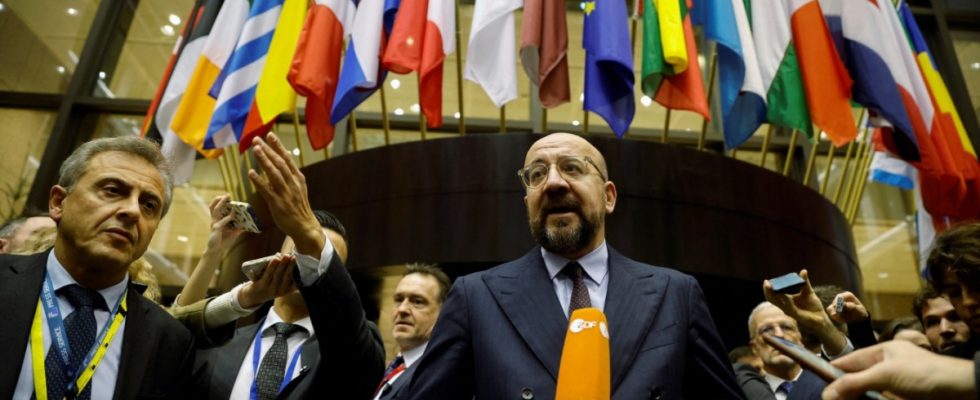The member states of the European Union have decided to open formal accession negotiations with Ukraine. EU Council President Charles Michel announced this on Thursday evening on the short message service X. Accession talks should also begin with Moldova, Michel wrote. The decision is “a clear sign of hope” for the populations in the countries.
With the decision, the EU narrowly avoided a diplomatic debacle. Just a few hours earlier, it had looked as if Hungarian Prime Minister Viktor Orbán might block the opening of membership negotiations between the EU and Ukraine. In doing so, he would not only have gone against the EU Commission, which recommended this step a few weeks ago. He would also have duped the remaining 26 EU governments – and isolated himself in the EU on an extremely important issue. There are some among other European countries who are skeptical about Ukraine’s early accession to the EU because of the corruption and rule of law problems in the war-torn country and the potential costs. Before the summit, except for Orbán, all European heads of state and government were still ready to make the fundamental political decision to start negotiations at the meeting in Brussels.
“We are not in a Hungarian bazaar.”
According to information from EU circles, the remaining council members scored a coup with the agreement and made the accession decision without Viktor Orbán. He was not in the room at the time of the decision and, unlike usual practice, he was reportedly not represented by another council member. This meant that the Council had a quorum of 26 – and was able to approve the start of accession talks with Ukraine and Moldova without Orbán’s vote. It was said that this had been agreed upon beforehand.
“It is important to us that we now set the course that will advance the accession process here in Europe and that this is also a decision that is supported by all member states,” said Chancellor Olaf Scholz before the summit began. Germany therefore supports the EU Commission’s recommendation to start negotiations.
Other EU heads of government made similar statements. If Ukraine is not supported by the EU, it would be a victory for Russian President Putin, said Irish Prime Minister Leo Varadkar. Before the summit began, his Belgian colleague Alexander De Croo personally reprimanded Orbán for his blockade: “We are not in a Hungarian bazaar where we can exchange one thing for another,” he said.
Orbán was taken aside on Thursday morning by Chancellor Scholz, French President Emmanuel Macron, EU Council President Charles Michel and EU Commission President Ursula von der Leyen. Even after that, he initially gave no indication that he would change his mind. “We are not in a position to start negotiations,” he said. A few hours later, Michel at X announced the agreement, completely unexpectedly.
Orbán let his colleagues pass the resolution without objecting
Orbán, who presents himself as a friend of Putin, has been expressing increasing doubts about the EU’s Ukraine strategy for some time. So far, however, he has supported all vows of solidarity, aid packages and rounds of sanctions. In the last few weeks, his previous criticism of Europe’s Ukraine policy has become more and more obstructionist. He is working with the part of the Republican Party in the USA that wants to end American arms and financial aid to Kiev. Nevertheless, on Thursday he let his colleagues pass the decision to open accession talks without objecting – that was enough.
Government officials in Brussels had initially feared that the Hungarian might be seriously willing to blow up the European consensus on Ukraine. For the EU – but especially for the attacked country – that would have been a political disaster.
However, Orbán remained stubborn on Thursday evening when it came to future financial aid for Ukraine. The Hungarian continued to reject the plan, supported by all EU countries, to protect Ukraine from national bankruptcy in the next four years with a total of 50 billion euros from the EU budget – including 33 billion euros in loans and 17 billion euros in grants away. However, his leverage on this issue is less strong. While the accession talks can only be opened unanimously, the other member states of the European Union are willing to raise the new financial aid for Kiev outside the EU budget without Hungary, if necessary.

